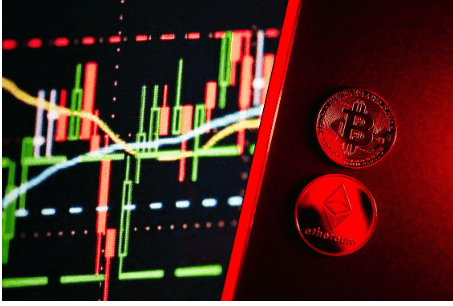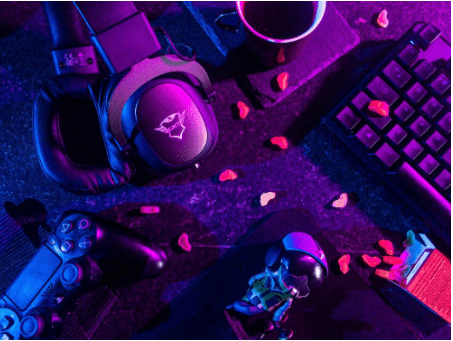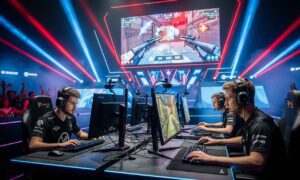NFTs. They did not even exist one decade ago, but are now completely reshaping the digital economy as we know it. NFTs are having a huge impact on the gaming landscape, both for players and for game developers, and are not a fad that will disappear anytime soon.
But what exactly are NFTs, where have they come from and how are they used in gaming?
What are NFTs?
NFTs, also known by their full name Non-Fungible Token, are cryptographic assets that are tokenized on the blockchain and are assigned unique code that distinguish them from all other assets. They are created through the process of minting and as a fungible item, they can be traded or exchanged.
The first NFT named Quantum was created in 2014 by Kevin McCoy on NameCoin. Since then, NFTs in a range of categories have been created and traded, including everything from photography and music to collectables and art pieces.
One famous example of NFTs in the earlier days is cryptokitties, these were digital cats created on the Ethereum blockchain and each kittie was unique and could reproduce to create more kitties. Within weeks of their creation, fans hcad spent more than $20 million US dollars in trading and nurturing their cryptokitties.
It was 2021 when the NFT market reached a boom. During this time NFT virtual worlds like Decentraland and NFT games like Axie Infinity became popular. Axie Infinity has reached 2.8 million players per day, it is a play to earn game where users must buy three virtual pets and raise them, the trick is to know how to sell an NFT for the best possible price at an NFT marketplace.
NFTs in gaming
The gaming world is what has allowed NFTs to rapidly gain so much attention over the last couple of years. Online gaming is a huge and rapidly growing industry, from puzzles, to action and adventure titles – playing games online is a way for people to transport themselves to another place and entertain themselves in a virtual, immersive environment.
At present, most games are centralized structures where all assets, logic and user data is owned solely by the game development company. In these traditional games, players invest their time and money and in return the games companies make stacks of profits.
NFTs have the potential to turn this system on its head. With NFTs, an ecosystem can be created where players contribute content and have ownership of assets within the game.
In-game items could be made into NFTs
In-game NFT items put more power into the players hands, assets such as characters, skins, stories and accessories can be created and traded by and between players on the blockchain. However, the question of ‘ownership’ remains here as although the player may own the asset, it might always be accessible or of value to them.
For example, if the URL goes down, or if they no longer wish to play that game the asset cannot usually be transferred to a new game. After all the game concept, art style etc. will most likely be different.
Alternatively, the game could be discontinued or have significant downtime. The player may be able to display their asset outside the game on their channels as part of their identity, however its useability really is down to the game developer.
Transparency in NFTs
Transparency is another important consideration for in-game assets. For assets purchased from the developer, the player relies on the developer to operate as an honest actor in valuing the asset, its rarity and authenticity.
NFT in-game assets could allow players to access more information on the item, such as the number of such items in circulation, its validity, creation date, scarcity and other helpful stats. They can even see previous sales prices and number of previous owners.
Nevertheless, NFTs have their limitations as there is a growing lack of trust in the NFT market as issues of plagiarism, fakes and spam come to the surface. Some sort of self-regulation could be needed as the the market continues to grow.
In-game NFTs have a huge amount of potential, they can give players far more choice and ownership over the gaming experience they have online. Developers cannot ignore NFTs and should adapt their future releases to embrace this market. NFTs can completely re-develop the gaming ecosystem and the relationship between game developers and game players.




































